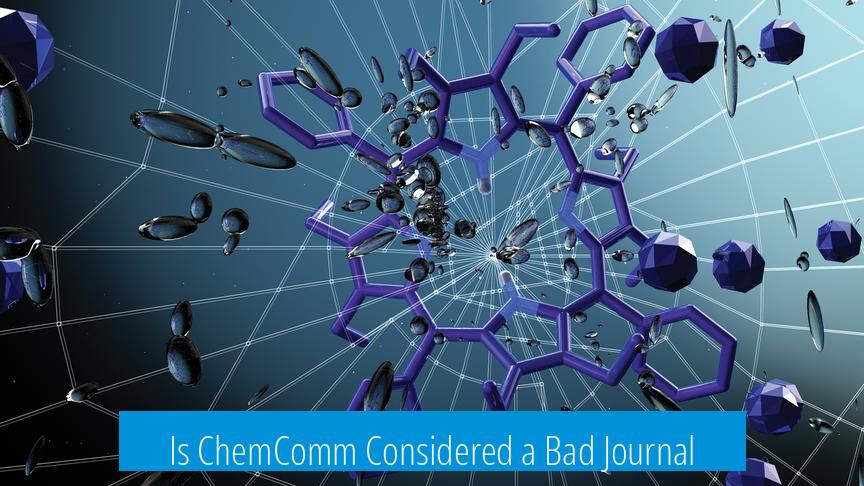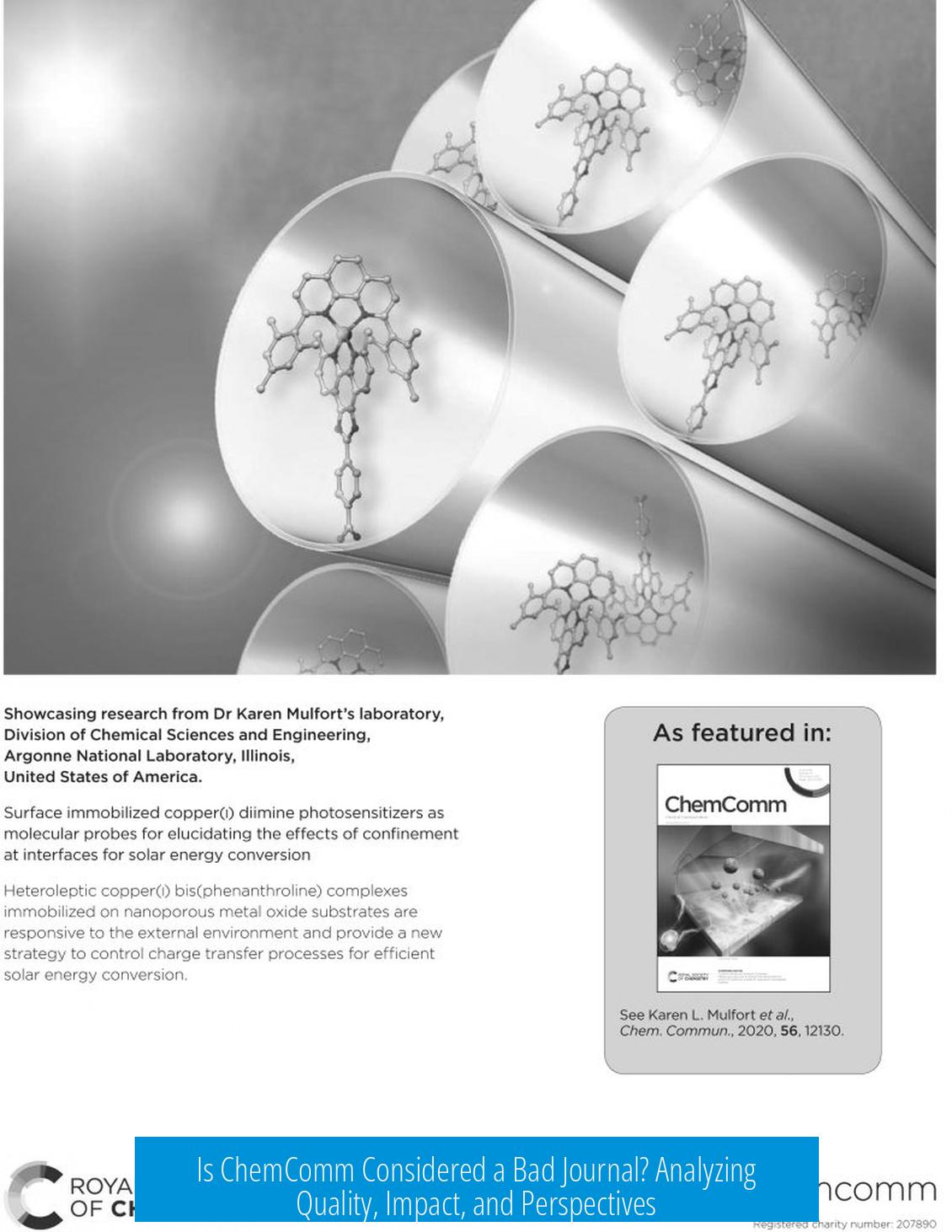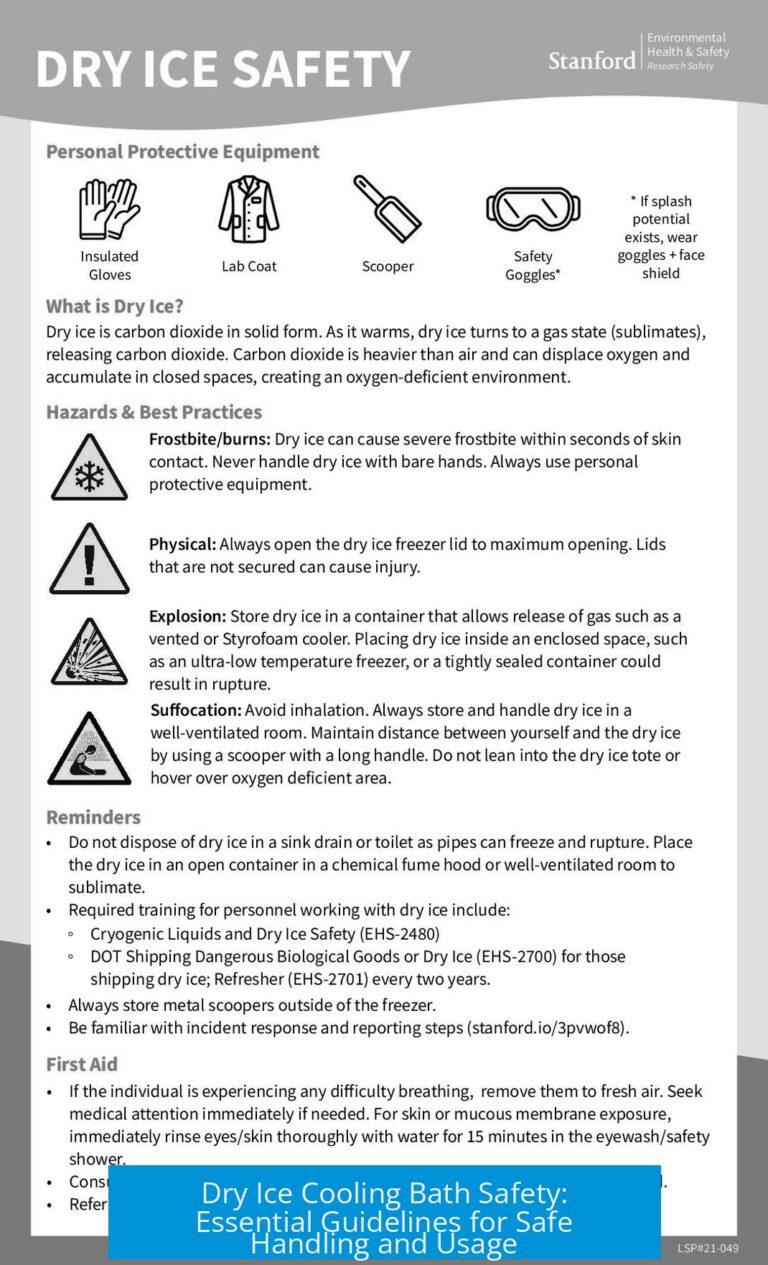Is ChemComm Considered a Bad Journal?

ChemComm is not considered a bad journal; it holds a respectable position in the chemistry publishing landscape, especially for short communications, but it is not a top-tier journal.
Position within Chemistry Journals
ChemComm ranks below leading journals like Science, Nature, JACS (Journal of the American Chemical Society), and Angewandte Chemie. It generally sits alongside or just below other solid journals such as Inorganic Chemistry and Organometallics.
| Top Tier | Mid Tier | Lower Tier |
|---|---|---|
| Science, Nature, Nature Chemistry | JACS, Angewandte, Chemical Science, ChemComm | Organometallics, Chem. Eur. J., Dalton Transactions |
Within this framework, ChemComm is considered a solid mid-tier journal but it does not carry the same prestige as journals with higher impact factors and longer article formats.
Format and Type of Publications
ChemComm specializes in short communications, typically around two pages. It focuses on rapid dissemination of new findings, often without the extensive data that longer articles include.
- Publishes short, concise reports
- Rarely features first reports compared to Science or Nature
- Aims for quick communication rather than comprehensive studies
Impact Factor and Quality Considerations
The impact factor of ChemComm is approximately 6. This value indicates a solid journal with good visibility within chemistry. However, it falls short of the impact factors seen in top-tier titles, which may exceed 12.
An impact factor near 6 is respectable and signals that the journal publishes reliable and frequently cited work. Many research groups treat ChemComm as a valuable venue for results that merit timely communication but may not require the depth or prestige of higher-impact journals.
Subjectivity of the “Bad” Label
The evaluation of a journal as “bad” depends on subjective criteria. Factors include:
- Impact factor expectations
- Article length and depth
- Field-specific standards
- Personal or institutional priorities
Therefore, labeling ChemComm as bad is not broadly accurate. Many researchers view the journal as suitable for certain types of contributions, especially short communications with solid scientific value.
Researcher and Group Perspectives
High-level research groups often consider ChemComm as a reasonable publication target when compared to journals with lower impact. It offers a balance between speed and visibility, making it a worthwhile option.
Key Takeaways
- ChemComm is a mid-tier, respectable chemistry journal.
- Publishes short communications, not full-length papers.
- Holds an impact factor of approximately 6, solid but not top-tier.
- The “bad” label is subjective and depends on criteria like impact factor and article type.
- Many researchers consider ChemComm worth publishing in within its niche.
Is ChemComm considered a bad journal in the chemistry community?
ChemComm is not labeled as bad. It is viewed as respectable but not top-tier. It sits in the mid-range among chemistry journals.
How does ChemComm rank compared to journals like JACS or Nature Chemistry?
It ranks below top journals like JACS and Nature Chemistry but above some specialized or lower-impact journals. It is seen as solid but not elite.
Does ChemComm publish full research papers or short articles?
ChemComm mainly publishes short communications, usually about two pages. Full-length papers are rare compared to journals like JACS or Angewandte.
What is the typical impact factor of ChemComm, and what does it imply?
Its impact factor is around 6. This is solid for many chemistry fields but not as high as the leading journals. It indicates moderate influence.
Is the term “bad journal” useful when discussing ChemComm?
The term “bad” is vague. Some might see ChemComm as lower quality if they expect top-tier impact factors, but many view it as a decent venue for quality work.




Leave a Comment